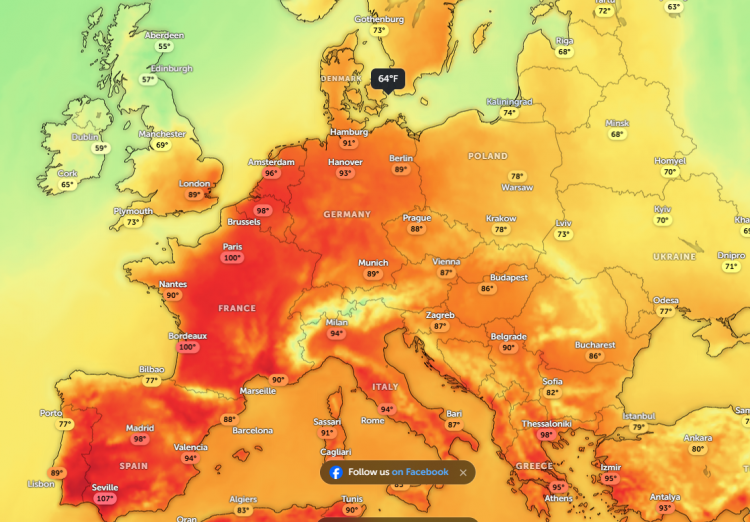A blistering heatwave that swept through Western Europe between late June and early July led to approximately 2,300 deaths across 12 major cities, with at least 1,500 directly linked to climate change, according to a study released Wednesday by Imperial College London and the London School of Hygiene & Tropical Medicine.
The ten-day heatwave, which ended July 2, triggered record-high June temperatures in England and Spain, widespread school closures in France, and intense wildfires in Sardinia. Cities affected included London, Paris, Madrid, Barcelona, Milan, and Rome. Researchers concluded that two-thirds of the fatalities, primarily among the elderly, were attributable to global warming.
"Climate change has made it significantly hotter than it would have been, which in turn makes it a lot more dangerous," said Dr. Ben Clarke, a researcher at Imperial College London. The report found that the heatwave was intensified by 2 to 4 degrees Celsius due to the buildup of greenhouse gas emissions.
The analysis, which is not yet peer-reviewed but utilizes peer-reviewed methodologies, estimated the death toll by comparing real-world mortality data against simulated projections of a similar heatwave in a world without anthropogenic climate change. The majority of deaths occurred in homes or hospitals, underscoring why extreme heat is often called a "silent killer."
"Heat waves don't leave a trail of destruction like wildfires or storms," said Gary Konstantinoudis, a biostatistician at Imperial College and co-author of the study. "Most heat wave deaths happen in homes and hospitals, out of public view and are rarely reported."
Akshay Deoras, a research scientist at the University of Reading, said the techniques used "leave no doubt that climate change is already a deadly force in Europe." He added, "Think of the Earth like an oven. In the past, heatwaves were like turning the oven up for a short burst. But with climate change, it is as if we have permanently set the oven to a higher temperature."
According to the European Union's Copernicus Climate Change Service, June was the third-hottest globally on record. Western Europe experienced its warmest June ever, with much of the region suffering from "very strong heat stress"-defined by a perceived temperature of 38°C (100.4°F) or more.
Samantha Burgess, Copernicus' strategic lead for climate, stated, "In a warming world, heatwaves are likely to become more frequent, more intense and impact more people across Europe."
The study warned that without significant reductions in fossil fuel use, death tolls from heatwaves will likely climb. Heat wave temperatures "will keep rising and future death tolls are likely to be higher," the report concluded, "until the world largely stops burning oil, gas and coal and reaches net zero emissions."






